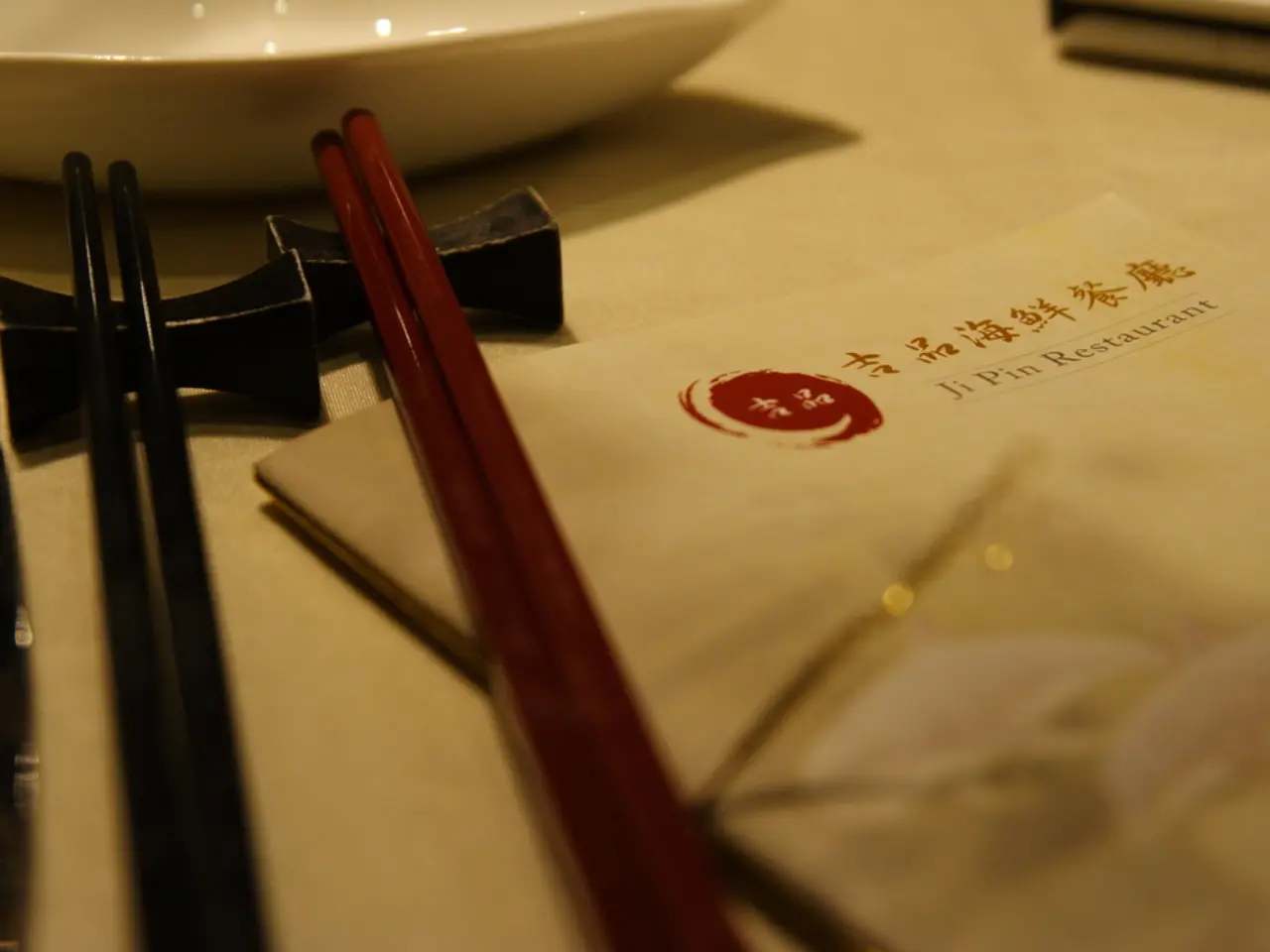Meeting increased demand in supply chains facing worldwide challenges
In the dynamic world of international trade, Vietnam and Japan's strategic relations have found a significant pillar in their shared supply chains. By strengthening this connection, both nations stand to benefit mutually.
In the past, Vietnamese companies enjoyed the freedom to import components and equipment for their manufacturing activities, with the finished products being exported to the global market. However, the landscape is changing, with Japanese businesses in Vietnam actively increasing local procurement of spare parts.
This shift is achieved through various strategies, including the use of flexible procurement services, strategic partnerships with vetted local suppliers, and participation in sourcing events. These approaches aim to reduce imports, thereby overcoming challenges related to quality and delivery unpredictability, and fostering more reliable and cost-effective local supply networks.
One such flexible procurement service is Ohta Vietnam, which collaborates with over 150 partner factories, primarily selected from JETRO's "Excellent Vietnamese Supporting Industry" list. This service offers one-stop support in multiple languages, ISO/JIS quality control, and cost optimization, making it easier for Japanese firms to navigate the local supplier landscape and manage bulk ordering challenges for complex parts.
Another strategy is the "China +1" approach, where Japanese companies are diversifying their sourcing from China to Vietnam, taking initial steps safely and efficiently via established local procurement frameworks.
The interest in increasing local procurement rates among Japanese businesses in Vietnam is evident, with 50.9% of these companies planning to expand local sourcing—the highest rate among ASEAN countries and a 7.7 percentage point increase from the previous year.
Participation in international sourcing events such as Vietnam International Sourcing 2025 (VIS 2025) enables Japanese companies to discover Vietnamese suppliers that meet their standards and regulatory requirements, facilitating tailored product development and supplier matching, thus improving supply chain resilience.
These strategies have several impacts on their supply chains and bilateral relations. Increased local procurement reduces dependency on imports, lowers costs, improves supply chain agility, and allows for better alignment with local market conditions and regulatory frameworks. Flexible sourcing models and quality controls improve predictability in delivery and product quality.
By partnering with certified Vietnamese suppliers and engaging in joint development efforts aligned with Vietnam’s industrial standards, Japanese firms strengthen strategic economic ties and contribute to the sustainable growth of Vietnamese manufacturing capabilities. This, in turn, supports long-term collaborative trade relations.
Vietnam, with its significant market potential and status as a manufacturing hub for exports, is not immune to challenges. New tariffs from the US, particularly a 40% tariff on transshipment, have created difficulties for many businesses, as products containing components imported from third countries could be impacted.
Despite these hurdles, the move to expand local procurement enhances Japanese businesses' competitive position in Vietnam, fostering resilient, cost-effective supply chains while deepening economic integration between Japan and Vietnam.
- Embracing technology-driven solutions, such as the use of flexible procurement services and participation in international sourcing events, allows Japanese businesses in Vietnam to navigate the local supplier landscape more efficiently and establish cost-effective local supply networks.
- The increasing adoption of technology in supply chain management by Vietnamese companies, as seen in the partnerships with certified suppliers and the implementation of quality control measures, not only improves the predictability in delivery and product quality but also aligns with the regulatory frameworks to foster better strategic economic ties between Japan and Vietnam.




